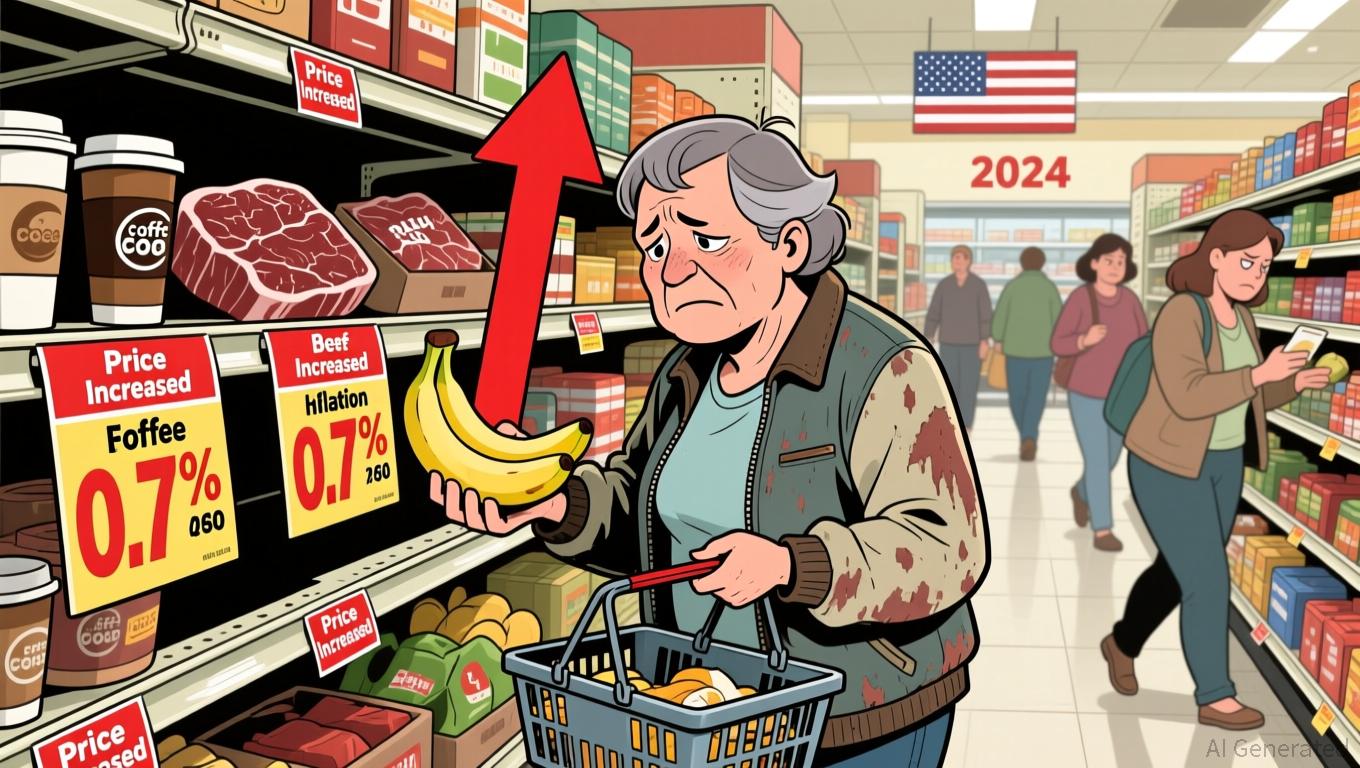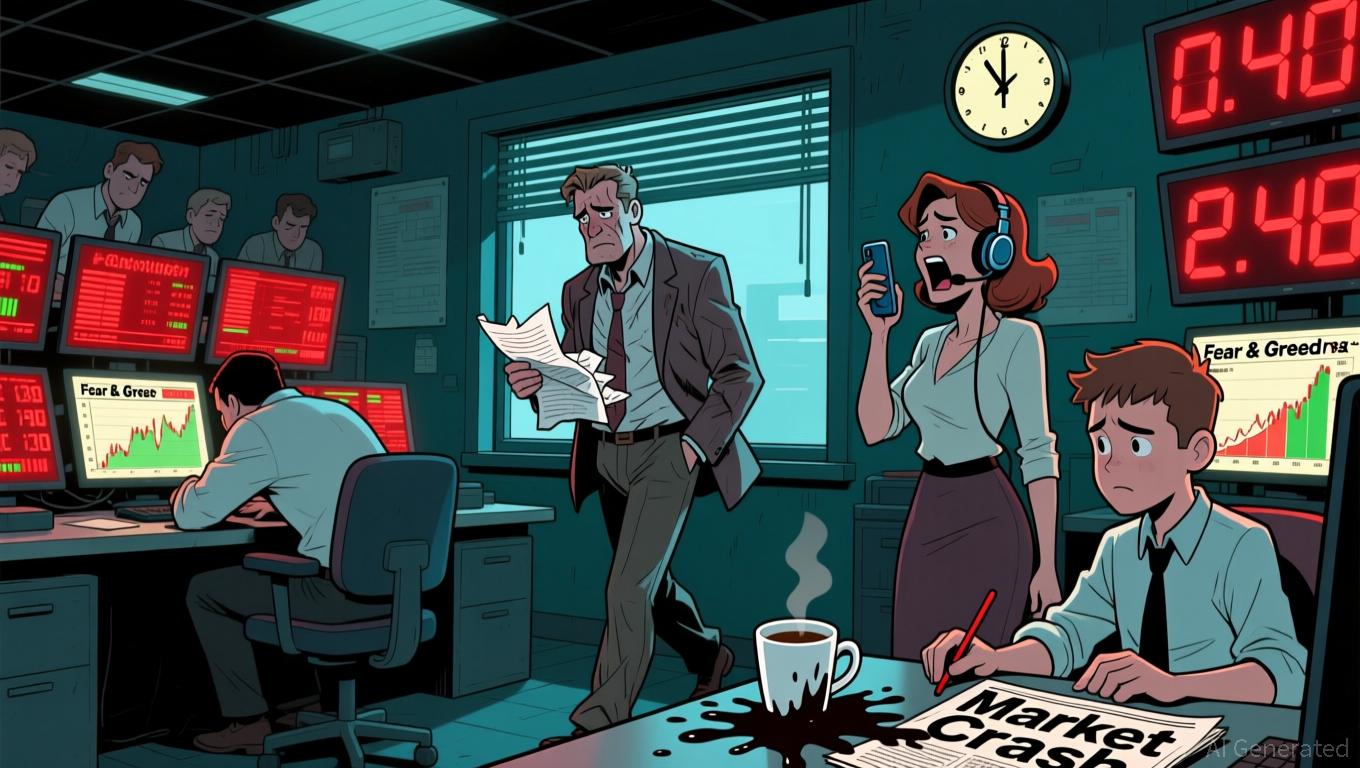Trump's approach closely resembles Biden's, and both are dealing with criticism over rising inflation
- Trump's inflation policies mirror Biden's, facing criticism for downplaying price pressures while implementing measures economists say worsen costs. - Tariff hikes and deregulation drove consumer prices up to 3% by September 2024, with Trump later cutting agricultural tariffs to address grocery price spikes. - Proposed $2,000 dividend checks from tariff revenue face fiscal concerns, while deregulatory moves clash with Biden-era consumer protections. - Mixed policies include mass deportations raising labo
Trump's administration is increasingly adopting tactics similar to those used by Joe Biden to tackle inflation, with both leaders facing backlash for minimizing concerns about rising prices while enacting measures that many economists say drive up costs for everyday Americans. These similarities have attracted attention from experts, who point out that
After Trump introduced broad tariffs, consumer prices climbed from a 2.3% yearly increase in April 2024 to 3% by September, a development that

The administration's inflation response goes beyond tariffs. Trump has floated the idea of giving Americans $2,000 checks funded by tariff revenue, though economists caution that this plan is not financially viable given the size of the national debt and the fact that many tariff-related costs have already been absorbed by consumers
Trump's actions have also rolled back some consumer protections introduced under Biden. The Department of Transportation recently eliminated a rule that would have required airlines to compensate travelers for delays, a Biden-era measure that critics said would have encouraged better punctuality
Although Trump promotes his policies as drivers of job growth, opponents point to unintended side effects. For example, his large-scale deportation proposals have been associated with increased construction expenses due to a shrinking workforce in sectors that rely heavily on immigrants
The administration's inconsistent approach has drawn parallels to Biden's early days in office, when officials downplayed inflation even as prices surged. Michael Strain, who leads economic policy studies at the American Enterprise Institute, observed that both presidents have "minimized inflation as an issue" while focusing on other economic metrics
Disclaimer: The content of this article solely reflects the author's opinion and does not represent the platform in any capacity. This article is not intended to serve as a reference for making investment decisions.
You may also like
Ondo (ONDO) To Make Rebound? Key Emerging Harmonic Pattern Suggest So!

Bitcoin Updates: MicroStrategy Accelerates Bitcoin Acquisition While Other Corporations Reduce Purchases
- MicroStrategy continues daily Bitcoin purchases, now holding 641,692 BTC valued at $47.5B, representing 3.1% of total supply. - CEO Saylor defends Bitcoin as "digital capital," maintaining leverage below 1.15x and debt maturities over four years to withstand price volatility. - Institutional confidence grows as MUFG boosts stake by 15.9%, while broader corporate BTC buying slows to 656 BTC/day in October 2025. - Despite market uncertainty, MicroStrategy raised $770M via preferred stock to fund purchases,

Bitcoin Updates Today: Mass Sell-Offs and Major Investors: November's Volatile Crypto Market Revealed
- Bitcoin fell below $95,000 in November 2025, triggering a market-wide selloff as Ethereum and Solana dropped 12-13%, with a $867M ETF outflow amplifying panic. - Investor anxiety spiked (Fear & Greed Index at 16), dragging down crypto-exposed stocks like MicroStrategy (-7%) and Robinhood (-9%), while Bybit reported $19B in open interest losses. - Regulatory clarity and U.S. government resumption eased short-term tensions, but geopolitical risks from China-Taiwan tensions and macroeconomic uncertainty per
